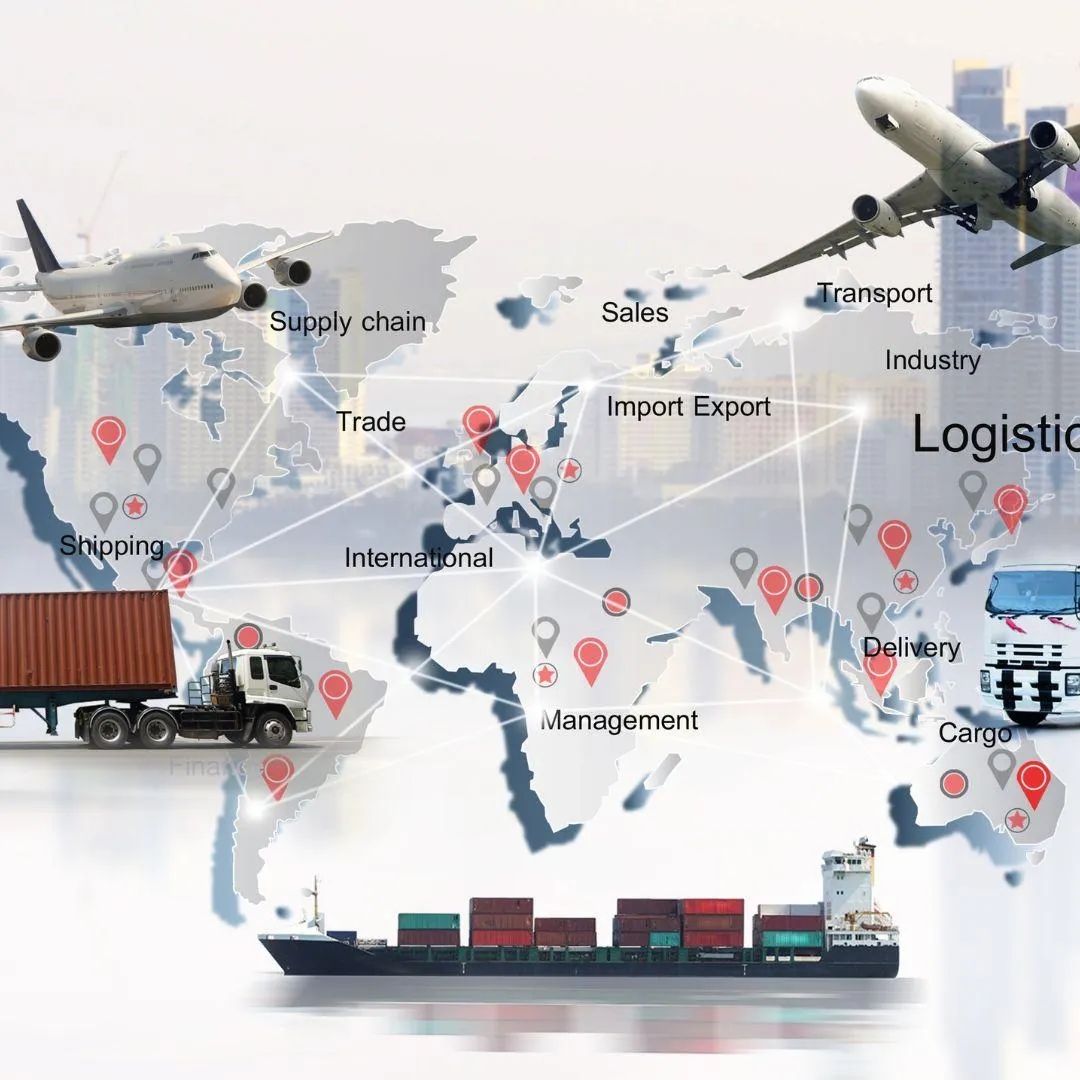OUR LATEST BLOG
Blog

The Influence of Transportation Technology on Consumer Engagement
What is Transportation Technology?
Transportation technology refers to the tools, systems, and innovations used to improve the efficiency, safety, convenience, and sustainability of transportation systems. It encompasses a wide range of technologies and advancements that impact how people and goods move from one place to another. Transportation technology includes developments in vehicles, infrastructure, software, and communication systems that support the overall functioning of transportation networks.
How has transportation technology evolved over the years?
Transportation technology has undergone remarkable evolution over the years, driven by advancements in engineering, materials science, and digital technology, among other fields. In the early days, transportation was limited to basic human and animal-powered methods, such as walking, horseback riding, and the use of simple carts. The invention of the wheel around 3500 BC marked a significant turning point, enabling more efficient movement of goods and people. The development of ships and sailing technology allowed for maritime transport, facilitating trade and exploration.
The Industrial Revolution in the 18th and 19th centuries introduced steam power, leading to the creation of steam locomotives and ships. This era revolutionized land and water transport, drastically reducing travel time and increasing the capacity for freight movement. The subsequent advent of gasoline engines in the 20th century gave rise to automobiles and airplanes, further transforming how people and goods were transported.
In recent decades, the introduction of digital technology has brought about a new era of transportation. The rise of electric vehicles (EVs) is reshaping the automotive industry, driven by concerns over fossil fuel dependence and environmental impact. Advances in battery technology have made EVs more practical and accessible to consumers.
Moreover, the development of autonomous vehicles promises to revolutionize personal and public transport, with the potential to enhance safety, reduce traffic congestion, and improve mobility for those unable to drive. Public transportation systems have also benefited from technology, with innovations such as GPS tracking, mobile ticketing, and real-time updates improving the user experience.
Additionally, the rise of shared mobility services, such as ride-hailing and bike-sharing, reflects a shift in consumer preferences towards more sustainable and flexible transportation options. Drones and hyperloop technology are on the horizon, potentially reshaping logistics and passenger travel further.
Overall, the evolution of transportation technology is characterized by a continuous push for efficiency, sustainability, and convenience, reflecting changing societal needs and technological capabilities. As we look to the future, ongoing innovations are likely to redefine the transportation landscape even further, making it more interconnected and accessible than ever before.
What are the key technologies shaping transportation today?

Electric Vehicles (EVs) - Promoting sustainable transportation with zero emissions.
Autonomous Vehicles - Self-driving cars that use AI and sensors to navigate without human intervention.
Connected Vehicles - Vehicles equipped with communication systems that connect them to each other (V2V) and to infrastructure (V2I).
Mobility as a Service (MaaS) - Integrates various forms of transport services into a single accessible on-demand service.
Drones and Unmanned Aerial Vehicles (UAVs) - Used for delivery services, surveillance, and traffic monitoring.
Hyperloop and High-Speed Rail - Ultra-fast transit options aiming to reduce travel times significantly.
Smart Traffic Management Systems - Utilize AI and IoT to optimize traffic flow, reduce congestion, and enhance road safety.
Shared Mobility Platforms - Ride-sharing and bike/scooter-sharing services promoting sustainable urban mobility.
Advanced Logistics and Supply Chain Solutions - Incorporate AI, robotics, and IoT for efficient goods transportation.
Telematics and Big Data Analytics - Analyzing real-time data for vehicle management, route optimization, and predictive maintenance.
Why is understanding transportation technology important for businesses?
Understanding transportation technology is crucial for businesses, especially as they navigate the complexities of scheduling around holidays in the United States. For example, when a federal holiday such as Independence Day falls on a Saturday, employees may receive the following Monday off due to executive order 11582, which designates it as a legal public holiday for federal employees. This impacts private businesses that need to adjust their operations and employee schedules accordingly, ensuring they observe the holiday for pay and leave purposes.
Additionally, understanding the holiday calendar aids businesses in planning logistics and transportation needs. As holidays for federal employees can affect productivity, companies must be aware of when these holidays precede or follow weekends, especially if a holiday falls on a Sunday. By staying informed, businesses can optimize their transportation technology to enhance efficiency and meet delivery deadlines, thereby ensuring smooth operations throughout the year.
How Does Transportation Technology Impact Consumer Behavior?

Advancements in transportation significantly influence consumer decision-making by enhancing accessibility and convenience. For instance, as we approach September 2024, the ease of travel encourages more people to participate in events like the upcoming inauguration day on January 20, prompting consumers to plan their trips accordingly. With state and local governments recognizing holidays such as Washington's birthday, which falls on a Saturday, many businesses adjust their hours to accommodate shoppers, leading to increased sales. Consumers often treat these holidays with special observance, as outlined in 5 U.S.C, influencing their purchasing behavior during these peak times.
Moreover, institutions also adapt to these changes, as seen in the United States Code that designates holidays like New Year's Day and Washington's birthday to be observed on Monday when they fall on a nonwork day. This flexibility allows consumers to plan their shopping around long weekends, maximizing their leisure time. The gov website provides essential information on these holidays, helping consumers make informed decisions. Ultimately, the intersection of transportation advancements and holiday observances creates a dynamic retail environment that shapes consumer behavior.
How Can Businesses Leverage Transportation Technology for Better Engagement?
How can data from transportation technology enhance personalized marketing?
Data from transportation technology, such as GPS, telematics, and connected vehicle systems, enables personalized marketing by providing real-time insights into consumer behavior, travel patterns, and preferences. Marketers can use this data to deliver location-based offers, targeted ads, and customized experiences. For instance, identifying frequent routes or destinations allows for relevant promotions, while understanding commuting habits helps brands engage customers more effectively with timely and context-driven marketing strategies.
What partnerships can businesses form to improve transportation-related services?
Businesses can form partnerships to enhance transportation-related services by engaging in public-private collaborations, integrating new mobility services with public transit systems, and leveraging advances in technology such as mobile communications, cashless payments, and artificial intelligence. Additionally, contractual relationships between state or local governments and private companies, known as Public-Private Partnerships (P3s), can facilitate greater private-sector participation in the development, operation, and financing of transportation projects. Partnerships with Transportation Network Companies like Lyft, Uber, and Via can also help address mobility challenges.
What Are the Challenges of Implementing Transportation Technology?

How can consumer privacy concerns affect engagement strategies?
Consumer privacy concerns play a critical role in shaping engagement strategies for businesses. As companies strive to connect with their audience, they must navigate the complexities of data protection regulations, which can feel like a holiday falls on a Saturday for some. For instance, when a holiday is designated as a time for reflection, organizations must ensure their messaging aligns with consumers' expectations for privacy. The 6103 clause mandates that sensitive information remains confidential, compelling businesses to evaluate their data collection practices. In 2025, as more consumers become aware of their rights, companies will need to adopt transparent practices that foster trust. Though other institutions may offer promotions during holiday dates, a company that prioritizes privacy will stand out. In D.C. and Prince George's counties, engaging with consumers through secure channels, such as https, means you’ve safely connected, ultimately enhancing loyalty.
Moreover, when a holiday falls on a nonwork day, like a Sunday or Saturday, businesses can utilize this opportunity to remind clients of their commitment to safeguarding personal data. For example, the preceding Friday could serve as a reminder for companies to communicate their privacy policies effectively. As we reflect on February 11, 1971, the evolution of privacy laws highlights the ongoing need for vigilance. Federal employees who work on such holidays usually are observed with respect to their privacy rights. Therefore, businesses must consistently adapt their engagement strategies to maintain a balance between outreach and privacy, ensuring that customers feel valued and secure.
What are the potential risks associated with relying on advanced transportation technologies?
Relying on advanced transportation technologies comes with several potential risks:
Cybersecurity Threats: Autonomous vehicles, connected cars, and smart infrastructure are vulnerable to hacking, potentially leading to accidents or data breaches.
Privacy Concerns: Data collected from GPS, telematics, and in-vehicle sensors can compromise user privacy if not properly managed or anonymized.
Job Displacement: Automation, such as self-driving trucks, can lead to job losses in driving and logistics sectors.
Technical Failures: Dependence on complex technologies increases the risk of malfunctions, software bugs, or system failures, which could cause accidents or service disruptions.
Regulatory Challenges: Rapid technological advancements may outpace regulations, creating legal ambiguities and potential safety risks.
Ethical Issues: Autonomous decision-making systems in vehicles can lead to ethical dilemmas, especially in accident scenarios.
Cost and Accessibility: High implementation costs can limit access to these technologies, potentially widening the gap between different socioeconomic groups.
These risks highlight the need for robust safety measures, regulations, and ethical considerations when integrating advanced technologies into transportation systems.
What Is the Future of Transportation Technology and Consumer Engagement?

Emerging technologies like artificial intelligence (AI), augmented reality (AR), virtual reality (VR), and the Internet of Things (IoT) are transforming how consumers interact with brands. These technologies enable highly personalized experiences, predictive analytics, and interactive engagement, allowing businesses to better understand and anticipate customer needs. This shift will lead to more seamless and immersive interactions, such as personalized recommendations, virtual try-ons, and real-time customer support through chatbots and voice assistants.
To stay competitive, businesses must focus on key trends like personalization, omnichannel strategies, and immersive experiences. Leveraging AI for tailored marketing, integrating AR/VR for engaging shopping experiences, and ensuring data privacy will be crucial. Additionally, brands should prioritize sustainability and ethical practices to align with growing consumer expectations. By adopting these trends, companies can enhance customer loyalty and thrive in a rapidly evolving digital landscape.











